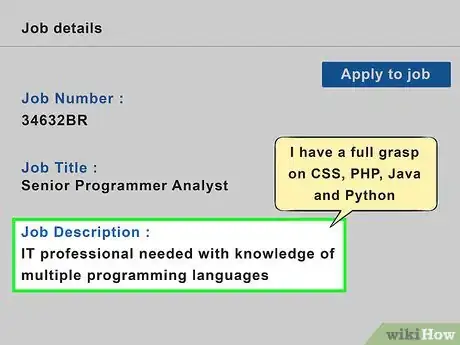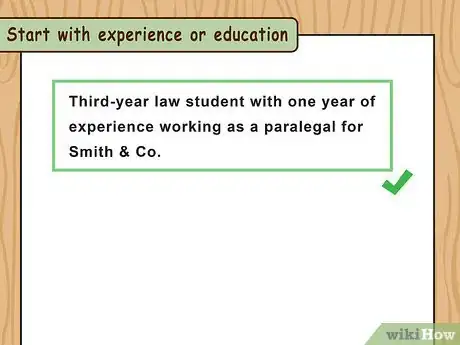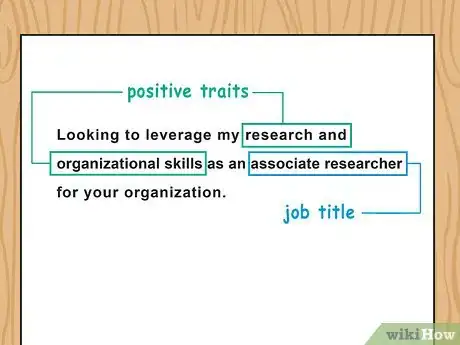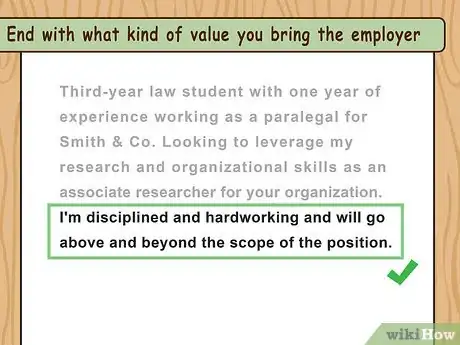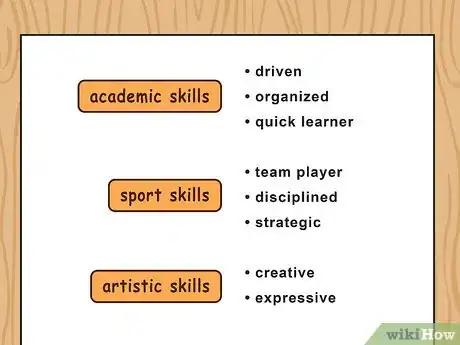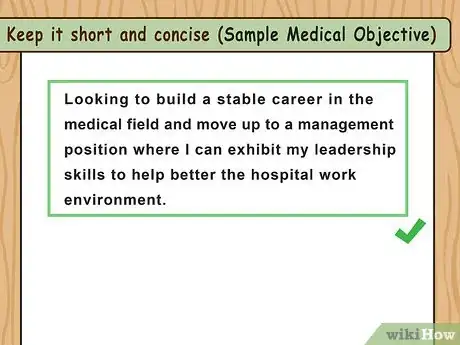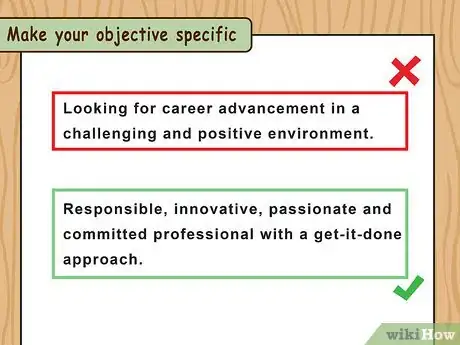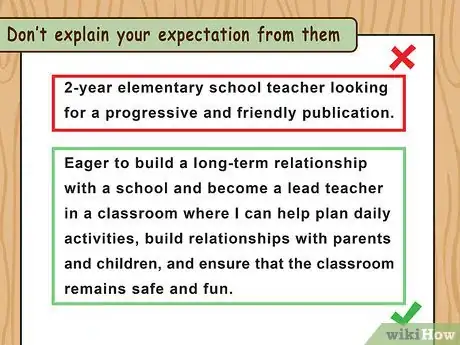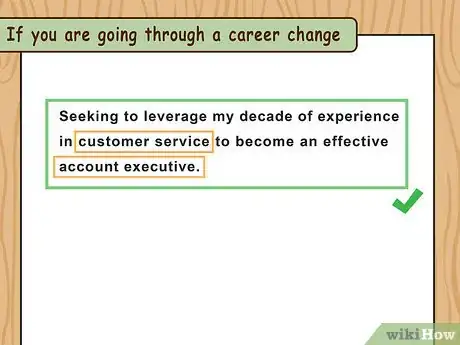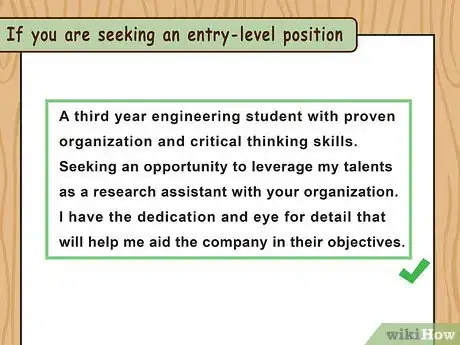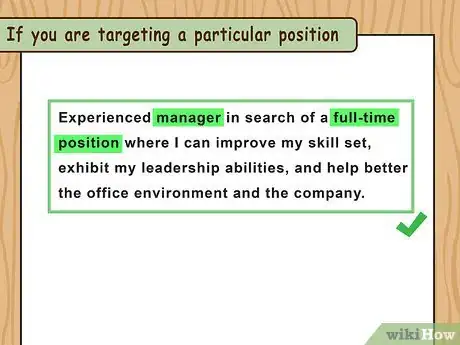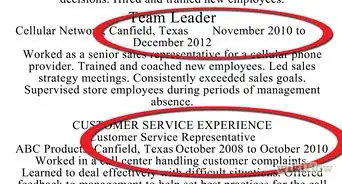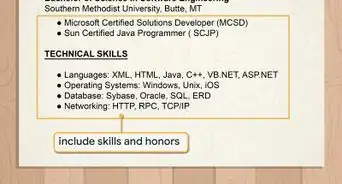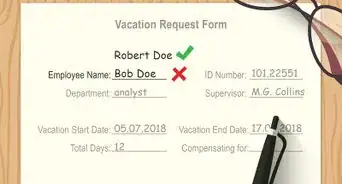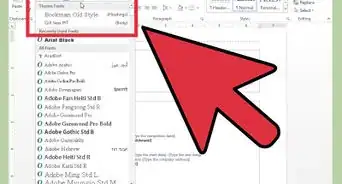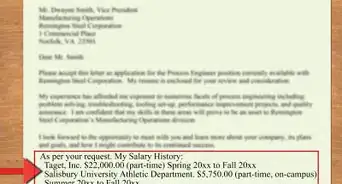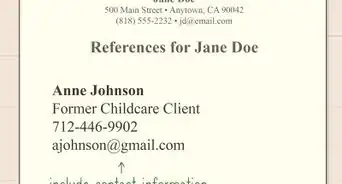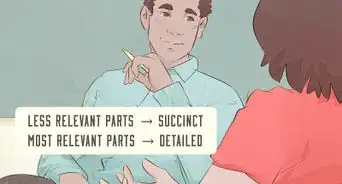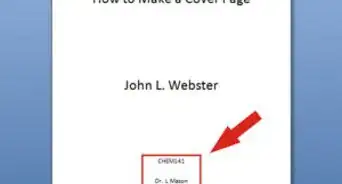This article was co-authored by Kent Lee. Kent Lee is a Career and Executive Coach and the Founder of the Perfect Resume, a career development services company based in Phoenix, Arizona. Kent specializes in creating customized resumes, LinkedIn profiles, cover letters, and thank you letters. Kent has over 15 years of career coaching and consulting experience. Previously, he has worked as a Career Consultant for Yahoo and has worked with thousands of clients including Fortune 500 executives from around the world. His work and career advice have been featured in ABC, NBC, CBS, Yahoo, Career Builder, and Monster.com.
wikiHow marks an article as reader-approved once it receives enough positive feedback. In this case, several readers have written to tell us that this article was helpful to them, earning it our reader-approved status.
This article has been viewed 503,249 times.
Writing a resume can be hard, especially with all the information that's available on the web. If you don't have much experience, you may not be sure how to communicate your skills to a prospective employer. Luckily, resume objectives are short statements that can explain why you would be a good fit for a particular position even without the experience. Resume objectives should be included on the top of your resume and is usually the first thing an employer will read. By evaluating your skills and writing down your positive qualities, you can write resume objectives that will help you get the job.
Steps
Writing a Resume Objective
-
1Read the job description again. Finding exactly what an employer is looking for will help cater your resume objective to the specific job that you're seeking. Look for traits that the company is looking for and try to relate it to skills that you possess. Instead of copying the exact wording of the job description, think of different ways that you can explain your positive traits using different words.[1]
- For example, if the job listing is looking for an IT professional "with knowledge of multiple programming languages" you can write that you have "a full grasp on CSS, PHP, and Java."
-
2Start the resume objective with your experience or education. The introduction for your resume objective should explain who you are and why you are applying for the job. Start your objective by talking about your major in school or the experience that you have.[2]
- For example, a good opening would be "Third-year law student with one year of experience working as a paralegal for Smith & Co."
Advertisement -
3Include a positive trait and the job title. The next part of your resume objective should be a positive characteristic that you can bring to the position you're applying to. Relate the trait to the job listing and then cite the job title itself. Think of things that set you apart from the rest and that also relates to the duties that you'd have to do if you got the job.
- You can say something like, "Looking to leverage my research and organizational skills as an associate researcher for your organization."
- Or you could say, "Seeking to leverage my customer service and PR skills to become a account executive with your organization."
-
4End the statement with what kind of value you bring the employer. Locate keywords within the job listing and end your statement by emphasizing how your skills and traits match with the position. Keywords include adjectives like team player, organized, reliable, disciplined, hardworking, and dedicated.[3]
- You can say something like "I'm disciplined and hardworking and will go above and beyond on whatever I'm doing."
- The full resume objective would read, "Third-year law student with one year of experience working as a paralegal for Smith & Co. Looking to leverage my research and organizational skills as an associate researcher for your organization. I'm disciplined and hardworking and will go above and beyond the scope of the position."
-
5Think of the skills that you gained in school. If you have little to no experience, you can write about how your experiences in school or clubs can translate to your new job. Think of your work ethic or skills you gained at school, and write down a list of traits that might relate to the job.
- For example, if you are academically excellent you can say you are "driven, organized, or a quick learner."
- If you were great in sports you can say that you're a "team player, disciplined, or strategic".
- If you were part of a community drama club, you can say that you're "creative or expressive".
Improving the Quality of Your Resume Objectives
-
1Keep it short and concise. Long resume objectives that don't get to the point are less useful. Hiring managers often have to look through hundreds of applicants and won't have the time to read a long resume objective. Your resume objective should be kept to three sentences.[4]
-
2Make your objective specific. A resume objective is meant to be to the point and concise. Avoid adding extra words that don't actually give any explanation to your objectives or career goals, or using words or descriptions that could be applied to virtually any job. Many times you might be tempted to list things that may not actually apply to your personality in order to impress the hiring manager. Don't do this.
- An example of a poor resume objective would be something like "Looking for career advancement in a challenging and positive environment" because these are things that most people look for in any job.
-
3Avoid writing a statement about what you're looking for in a career. Resume objectives inform the employer why you would be a good hire, not an explanation of what you expect from them. Avoid writing resume objectives that explain your career goals or what you hope to get out of the job.
- For instance, you wouldn't want to write "2-year professional writer looking for a progressive and friendly publication."
-
4Cater your resume objectives to different jobs. If you're applying to different kinds of positions, you don't want to have just one resume objective. Change your resume objective to the different jobs that you're applying to so that it applies to that specific job description.
Knowing When You Need an Objective
-
1Write a resume objective if you are going through a career change. If you're going through a career change, the experience on your resume may not match up with the job you're applying to. In this case, a resume objective can give an explanation on how your experiences and skills can transfer to your new position, as well as the positive traits that you can bring to their company.[5]
- You can start your resume objective with something like, "Seeking to leverage my decade of experience in customer service to become an effective account executive."
-
2Create an objective if you're seeking an entry-level position. If you have little to no experience, a resume objective can help explain how your skills or experiences in school or with extracurricular activities can translate to the job position you are applying to. Concentrate on talking about your positive traits, and how it would help you in your new role.[6]
- An example would be "A third year engineering student with proven organization and critical thinking skills. Seeking an opportunity to leverage my talents as a research assistant with your organization. I have the dedication and eye for detail that will help me aid the company in their objectives."
-
3Include an objective if you are targeting a particular position. When you are writing a resume objective for a specific position, you can use it to let the employer know about your unique skills or experience that would help you in your new position. Include specific skills that would make you a good fit for the position.[7]
Expert Q&A
Did you know you can get expert answers for this article?
Unlock expert answers by supporting wikiHow
-
QuestionWhat can I put on my resume instead of objective?
 Kent LeeKent Lee is a Career and Executive Coach and the Founder of the Perfect Resume, a career development services company based in Phoenix, Arizona. Kent specializes in creating customized resumes, LinkedIn profiles, cover letters, and thank you letters. Kent has over 15 years of career coaching and consulting experience. Previously, he has worked as a Career Consultant for Yahoo and has worked with thousands of clients including Fortune 500 executives from around the world. His work and career advice have been featured in ABC, NBC, CBS, Yahoo, Career Builder, and Monster.com.
Kent LeeKent Lee is a Career and Executive Coach and the Founder of the Perfect Resume, a career development services company based in Phoenix, Arizona. Kent specializes in creating customized resumes, LinkedIn profiles, cover letters, and thank you letters. Kent has over 15 years of career coaching and consulting experience. Previously, he has worked as a Career Consultant for Yahoo and has worked with thousands of clients including Fortune 500 executives from around the world. His work and career advice have been featured in ABC, NBC, CBS, Yahoo, Career Builder, and Monster.com.
Career & Executive Coach
-
QuestionHow do I write my objective for a salesman?
 Community AnswerHere are two examples. 1. People-oriented individual seeking a position with ABC company to contribute sales expertise and problem solving skills. 2. Talented individual seeking a sales associate job with ABC company to utilize 10 years of sales experience and customer relationship management skills.
Community AnswerHere are two examples. 1. People-oriented individual seeking a position with ABC company to contribute sales expertise and problem solving skills. 2. Talented individual seeking a sales associate job with ABC company to utilize 10 years of sales experience and customer relationship management skills. -
QuestionHow can I find someone to help me write my CV?
 Community AnswerYou can visit internet forums related to this topic. You can also ask people that have scored impressive job positions to help you.
Community AnswerYou can visit internet forums related to this topic. You can also ask people that have scored impressive job positions to help you.
References
- ↑ https://www.themuse.com/advice/42-resume-dos-and-donts-every-job-seeker-should-know
- ↑ https://resumecompanion.com/how-to-write-a-resume/resume-objective-examples-guide/
- ↑ https://uptowork.com/blog/resume-objective
- ↑ https://www.monster.com/career-advice/article/whats-your-resume-objective
- ↑ http://www.best-job-interview.com/career-change-resume-objective.html
- ↑ https://www.monster.com/career-advice/article/whats-your-resume-objective
- ↑ https://uptowork.com/blog/resume-objective#Professional-Objective
About This Article
To write a resume objective, start by briefly stating who you are and what relevant experience you have. In your next sentence, state that you’re looking to leverage one of your positive attributes at the job you’re applying for, and make sure to mention the job title. End your objective by explaining the specific value you’d bring to the company, emphasizing how your skills and traits match the position requirements, using keywords from the job description, if possible. To learn how to tailor your resume objective to the job you’re applying for, scroll down!
